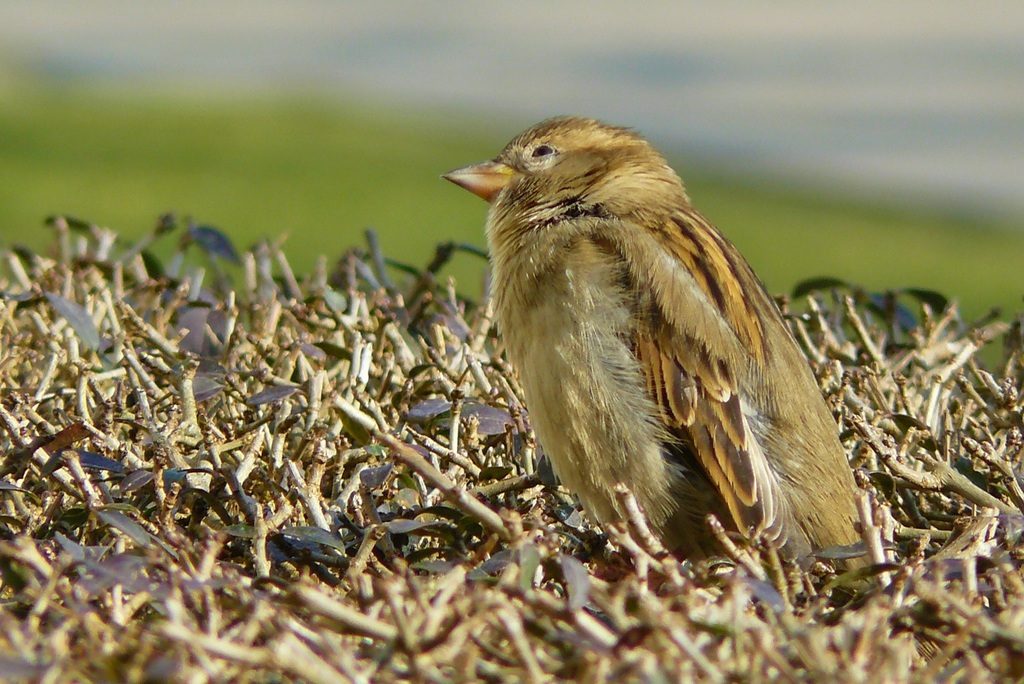Prohibited tree and hedge cutting at UCD and TCD during nesting season

May 16th, 2019
Tree and vegetation cutting has taken place at both University College Dublin (UCD) and Trinity College Dublin (TCD) this week despite legal restrictions during the bird nesting season.
The Wildlife Act currently restricts the cutting, burning or destruction of vegetation on uncultivated land or in hedges or ditches during the nesting and breeding season for birds and wildlife from 1 March to 31 August.
Photos of vegetation cutting at the two universities emerged on social media this week, with hedge and shrub cutting on UCD’s campus reported on Tuesday.
Further tree pruning on a small patch close to TCD’s zoology department was highlighted on social media on Tuesday by research associate Collie Ennis.
Ms Ennis told The Green News that the university has said that the foliage was removed to help sunlight reach a wildflower meadow that will aid TCD’s biodiversity and pollinator plan.
As a part of its current sustainability plans, TCD aims to both increase and encourage biodiversity on campus. Under its Biodiversity & Trees initiative, it lists increasing tree cover and biodiversity as two of its priorities.
“That’s fair enough and very important work. I just don’t know why it needed to be done during protected nesting season,” Mr Ennis said.
While appreciating that TCD has areas on campus where habitat management is carried out for biodiversity enhancement and education, Fintan Kelly of BirdWatch Ireland also questioned the timing of the works.
“It could have been done before the nesting season,” Mr Kelly said. “Clearly destroying uncultivated vegetation at this time of year is not only not best practice but it’s illegal”.
Neither TCD or UCD responded to requests from The Green News for comment.
The photos posted by Mr Ennis also include a photo of a dead chick that he said was found underneath the cut branches.
The Wildlife Act makes it an offence to wilfully destroy, injure or mutilate the eggs or nest of a wild bird, or to wilfully disturb a wild bird on or near a nest containing eggs or unflown young.
According to Dr Andrew Jackson of UCD’s School of Law, the term wilfully in this context needs to be “interpreted consistently with the word used in the EU Birds Directive, which is ‘deliberate’”.
He added, however, that the term “deliberate” has been “interpreted expansively” by the European Court of Justice to cover “accepting the possibility, or knowing that the risk exists, and proceeding anyway”.
In general, Dr Jackson told The Green News, there “appears to be a misconception” that the laws prohibiting vegetation cutting during the breeding and nesting season “somehow do not apply in urban areas, in gardens or campuses”.
“This is incorrect,” Dr Jackson saids, “and those out cutting during the closed period should be aware that they are running a gauntlet of criminal offences.
“The failure to respect these laws and the general absence of enforcement are clear contributors to the perilous state of our biodiversity, which ultimately endangers us all,” he added.
“The government has recently recognised that reversing this negative trend requires transformative change,” Dr Jackson said, adding that this change “starts at home”.
“So put your feet up this weekend, retire the hedge trimmer until September, and enjoy the sight of fledgling birds and other young animals as they emerge,” he continued.

Earlier this month, two men in Co Laois were convicted under the Wildlife Act for hedgerow destruction during the nesting season.
The offences included the wilful destruction of birds’ nests and the destruction of vegetation growing in a hedge in late May 2017 in Clogrenan, Co Laois.
According to data released to The Green News under Access to Information on the Environment regulations, the NPWS has brought just over 30 cases linked to illegal hedgerow or vegetation cutting or removal since 2010.
This accounts for a little over 15 per cent of cases brought by the service between 2010 and 2018, with other cases involving the likes of illegal hare coursing, bird trapping and tree removal.
Earlier this week, a Green Party politician challenged Kildare County Council over the cutting of hedgerows during the nesting season as part of the M7 upgrade.
Sinn Féin MEP Liadh Ní Riada also recently raised the issue of tree felling at the European Parliament, stating that constituents right across Munster and South Leinster have repeatedly brought the issue to her attention.
[x_author title=”About the Author”]







